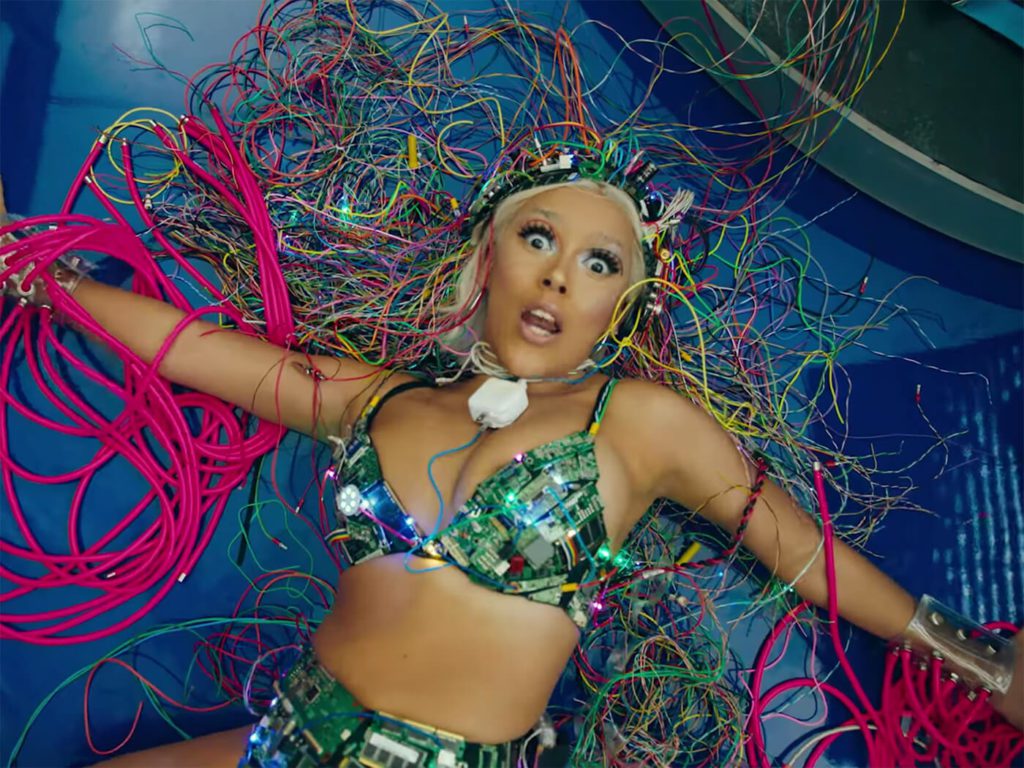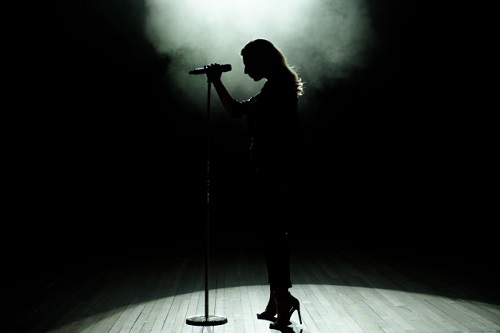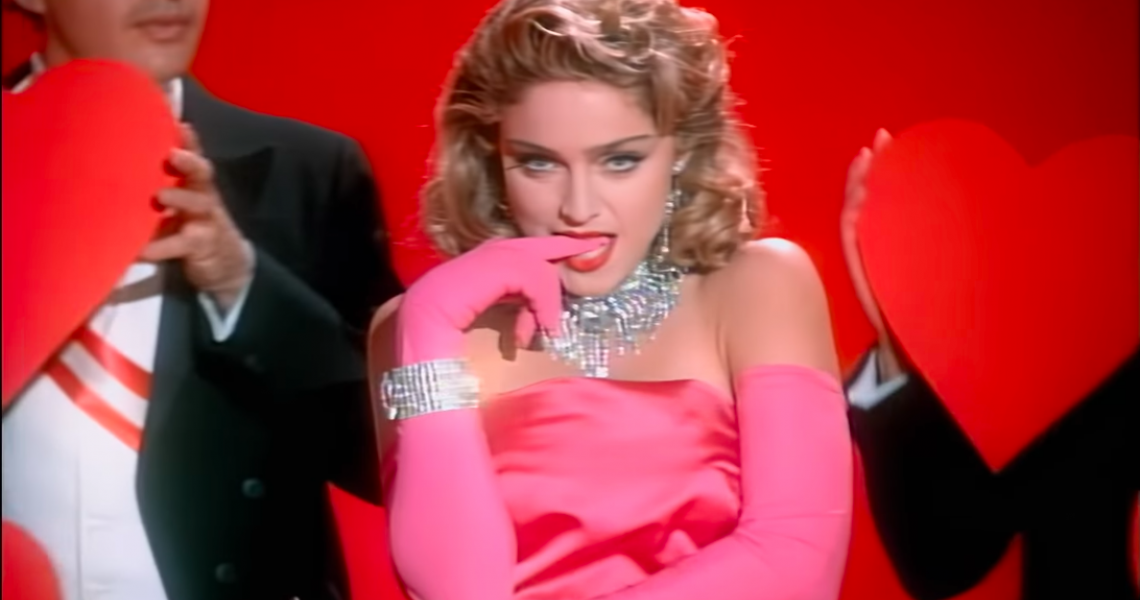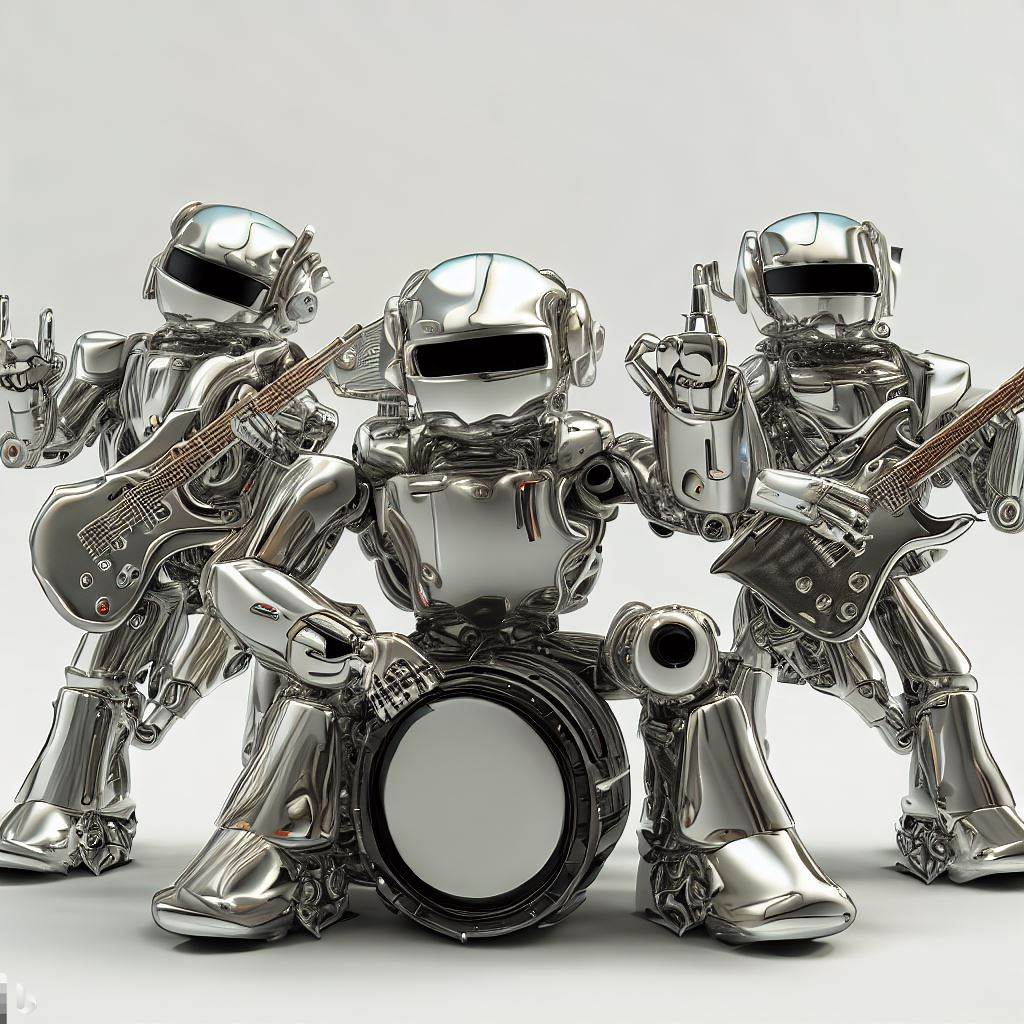Humanities
Music has always adapted to the demands of society. While in the Renaissance motets and polyphonic chants with religious texts were composed for the church, in the Baroque period concerti grossi were composed for the wealthier classes, and in Classicism symphonies were composed for patrons of the arts. With the arrival of romanticism, symphonic poems and piano nocturnes began to be composed to entertain bourgeois audiences in theatres and salons, and in the 20th century the commercial model took a turn and protest and countercultural music began to be created by the lower classes criticising the system (a simplistic, arbitrary, Eurocentric, elitist and exclusive approach, just to understand each other ;P).
This mini-historical overview of music consumption shows how access to music has become more and more widespreaduntil the current era in which, except in some parts of the world, absolutely everyone can access the music they want with a couple of clicks.
So what’s happening today?
Today, what is in demand is music for everyone, regardless of the origin, language or social class of the listener. There are a thousand and one genres with a thousand and one discourses within a neoliberal system of commerce in which you can choose the style that represents you, and in particular, within urban music the public is looking for music that tells our way of understanding modern life, the technology we use every day and the superficial things of today’s social networks: likes, remote ego, influencers, new concepts of employment that mean we don’t even have time to have a social life.
Yes, this kind of costumbrismo of superficiality is what both sides of the music trade share today, and both the content creator and the listener are to a greater or lesser extent active and at the same time passive subjects under the enormity of an era impregnated by the change in the model of life.

How everything has changed since the Renaissance, hasn’t it?
Well, no, not so much. Music today continues to do what it did before: it returns our self-perception to us like a mirror, and makes us see what the slogan of our moment is. In baroque times the slogan was “life is only a test while we wait for the divine prize”; in romanticism, “live little but intensely”. Today the slogan is something like “let yourself be carried away by the infinity of Google”.
And that’s how we find songs with lyrics full of exaltation of banality and vanity. In dancehall, they were already talking about Facebook and the Backberries almost a decade ago, and they already knew where the new era was going.
Allusions to modernity
In tracks such as Beenie Man’s Wreck the runway, phrases such as !An take mi Blackberry/ An a tell mi seh mi/ prosperous like the New Year/ Me inna a life is like a breath a fresh air/ Me richer tan the fresh prince of Blaire/ Caw mi a the king a Dancehall bout here” are spoken. Although the Jamaican English makes the text difficult to understand, there are key words such as “Blackberry” or “wealth”. The themes were already about generating wealth. Today they continue along these lines, but within mainstream pop music.
It is important not to confuse banality with mediocrity (at least in the aesthetic sense of the lyrics), as the lyrical content of these songs only says what people expect to hear. Urban music has simple and superficial lyrics because they are not expected to reveal the meaning of life, but rather to anaesthetise oneself against the complicated things outside and listen to lyrics that are practically empty of content in order to enjoy the music without the need for concentration.
Portraying our life
Technology is often alluded to as a part of our bodies: smartphones, apps… and giant boasts of vanity and banality are made because it has been observed that it sells, that is, banality is “poeticised”: our society today has grown up with technologies that cause addiction, and young people have lived their relationships through a less personal concept of life than before, so the average consumer is behaving no more and no less than the way his or her experience demands.
And this is the origin of figures such as the diva of the networks or the influencer who has a certain audience and communicates with them (always in a non-presential way). And unlike yesterday, today the possibility of achieving the delirium of greatness of the “rock star” is becoming a reality, even if this greatness does not go beyond a small quota of influence on the internet.
Let’s listen to this track by Doja Cat: Cyber sex
What, hallucinating, aren’t you? Look closely at the words. In this excerpt he comments on things like the fact of looking at himself through the camera, Instagram, mentions smartphones…
The lyrics
“We freak on the cam
Love at first sight, just a link to the ‘Gram
Pussy all pink with a tan
And I play with it ’til my middle fingers are cramped up
Swipe right ’cause he thick and he handsome
Love a sneak peek when you freak, can we cam up?
No shot to the screen, put your hands up
Make it pop in your face like a Samsung
And that’s my nigga, better yet, that’s my hitta
He don’t lick goons and if you do you could go missin’
Met him on Tinder, he just swiped left on bitches
And he don’t even scroll through Insta
‘Less he going through my pictures”
Another issue
They talk about Skype, photos, Facetime…
When he off work, he calling me on Skype (yeah!)
Trust me when I meet him, I’m fucking him on
sight (yeah)
Lemme see you can beat it, I’m feelin’ just like
Mike (okay, okay)
Huh-oh, stuff that ’til I drown in all of your
pics
Can’t scroll down ’cause some of them dicks
Nigga, my parents going through my shit (my
shit, my shit)
Huh-oh, can’t give head, you give me the
Facetime
Nigga, you a creep, I saw you on Dateline
You ain’t gettin pussy, you fucking a A.I
Huh-oh, what a time to be alive
Living in the future, blinging on my hotline
Sex and the screen
It goes through different means to do sexual things at a distance, such as hot lines, cyber sex (represented in the video clip by the figure of the webcammer)… and although in the image it seems that the lyrics concern the camgirl in the images, the text suggests the story of a girl who misses her partner and wants to pose for the camera in the company of her.
We can see how the girl wants to do things in person with her partner but he is not there, and she feels the desire to have cyber sex and on the other hand to play the diva on the internet through photos, which shows that although we miss the body-to-body life and face-to-face, in the end we also demand the distance life of our time, and we are beginning to get used to relating through technology, even for intimate things.
And as video clips often show an accessory or different reality to that of the lyrics, in this case we find a revision of the classic canons of the woman who exhibits herself while men adore her, albeit from the point of view of XXX webcammers.

The visual aspect also tells us things
Note also all the symbolism suggested by the image: in the video there is a man dressed as a robot in a silver suit and she is wearing a bikini made of chips. All the symbolic expressions in this video link to the idea of living life immersed in the machine. Khelani caresses a cat that is actually a hologram and says “what a time to be alive”. It’s like a “how nice it is to live in the matrix” kind of exaltation, a positive view of it, although it’s possible that it’s meant as irony.
Another important detail is her silver pendants, her false nails and her diamonds. The concepts of the incorporeal, the fantasy of the internet, that which you can see but cannot interact with, long-distance relationships, jewellery, cyber fame, the banal, etc. appear.
The banal princess
Another example would be Arianna Grande with her 7 rings hit and the idea of greed. In this work, the artist sells us the image of a princess with her tiaras and diamond earrings. In one of the shots she appears with long hair falling down a flight of stairs, in what could be considered a nod to the fairy tale of Rapunzel; shortly afterwards she appears in a barbie house made of paper, breaking the wall and looking at what’s inside.
In the video clip the background is a party in a mansion and everything is pink and lilac. Inside this giant house full of LEDs and expensive sofas, the artist tells us what is missing to complete the speech, and she constantly repeats “I have everything at my fingertips”. Doesn’t this phrase ring a bell?
Do I see myself reflected in these video clips?
This could be interpreted as one of the most widespread ideas about the millennial generation: we were born with everything within reach and everything is easier than ever. In this case, Ariana Grande applies it to vindictively using her empowering beauty and money as weapons to get what she wants, but she does so from an extremely superficial point of view, from the dynamics of commerce and material goods (My wrist, stop watchin’/ my neck is flossin’/ Make big deposits/ my gloss is poppin’/ You like my hair?/ Gee, thanks, just bough).
It’s all a kind of distorted, surreal fantasy about women in the modern era: she shops compulsively, is single and only goes out with her friends (Wearing a ring/ but ain’t gon’ be no “Mrs”/ Bought matching diamonds for six of my bitches).
This is not the only song about modern women’s singleness:
Good thing by Zedd ft. Khelani tells a similar story
I book myself tables
At all the best restaurants, then eat alone
I buy myself fast cars
Just so I can drive them real fuckin’ slow
I like my own company
Company, I don’t need it
I’m not always cold
I’m just good on my own, so good on my own
I’ve always been told, one day, I’ll find
Somebody who changes my mind
If they come along, I won’t think twice
‘Cause I already got a good thing with me
Yeah, I already got everything I need
The best things in life are already mine
Don’t tell me that you got a good thing for me
‘Cause I already got a good thing with me
Yeah, I already done everything I dream
I’m good by myself, don’t need no one else
Don’t tell me that you got a good thing for me
‘Cause I already got a good thing
I make myself up
Just to dance in the mirror when I’m at home
I pose and take pictures
Then send them to people that I don’t know
I like getting compliments
Compliments how I’m feeling, oh
I’m not always selfish
Just bad at romance, it’s not in my bones
I’ve always been told, one day, I’ll find
Somebody who changes my mind
If they come along, I won’t think twice
‘Cause I already got a good thing with me (good thing with me)
Yeah, I already got everything I need (everything I need)
The best things in life are already mine
Don’t tell me that you got a good thing for me
‘Cause I already got a good thing with me (good thing with me)
Yeah, I already done everything I dream (everything I dream)
I’m good by myself, don’t need no one else
Don’t tell me that you got a good thing for me
‘Cause I already got a good thing
I’ve always been told, one day, I’ll find
Somebody who changes my mind
If they come along, I won’t think twice
‘Cause I already got a good thing with me (oh, good thing with me)
Yeah, I already got everything I need (everything I need, yeah)
The best things in life are already mine
Don’t tell me that you got a good thing for me (no, no)
‘Cause I already got a good thing with me (good thing with me)
Yeah, I already done everything I dream (everything, yeah)
I’m good by myself, don’t need no one else
Don’t tell me that you got a good thing for me
‘Cause I already got a good thing
“Marriage is dead”.
Once again we can see how singleness is mentioned as “I don’t need my better half because I’m the whole orange”, which sounds very profound until we listen to all the lyrics and perceive the superficiality that surrounds the concept itself. “I book tables at the best restaurants”, “I buy cars just to drive them fucking slowly”, “I pose for pictures and then send them to people I don’t know”…
Once again this kind of approach to modern female empowerment is on display: a woman capable of amassing large amounts of money, who has enormous purchasing power, who is comfortable on her own and who uses sexuality and exhibitionism as a means to enrich her ego rather than to be dependent on a man.
Greed and resentment
We also haveMillionaire by Rosalia and that “twinned gluttony” that she exhibits in this double song. As I say, here the artist shows two faces: ambition and humility. The latter appears almost like a Christian repentance behind the former (“dios nos libre del dinero/ queriendo queriendo queriendo queriéndolo/ dios nos libre del dinero/ vestitiendo vestitiendo vestiiéndolo”).
Let’s take a special look at the lyrics of this first part, I leave you here the translation of the lyrics of Fucking money man, which was originally written in Catalan and it’s not bad.
That I know that I was born to be a millionaire
as if it rained down, throwing banknotes through the air
one day to mumbai and the next to malta
always well escorted and bulletproof
and what I would like is to have a white bentley
and a green one
but I know I can’t do all this
until the day I have a lot of money
and what I would like is to have a …
fucking money man
I just want to see hundred-dollar bills
fucking money man
dollar sign inside my mind
I know that I was born to be a millionaire
because they close the louvre as well as the macba
every day celebrating my birthday
and two running leopards in the garden
and what I would like is to have
fucking money man
I just want to see hundred dollar bills
fucking money man
sign of the dollar sign inside my mind
I carry two handmade audemars
covered in diamonds
and a hublot black caviar bang bang
that I can give to you
I have a guy for hire
for opening my christmas presents
and I have a guy for hire
for opening my christmas presents
and a hublot black caviar bang bang
that I can give you for christmas
I close the mall
and I eat my own ice cream
cava or champagne
popin bottles
christened the yacht
bought a star
I have an island named after me
but what I’d like is to have . ..
fucking money man
I just want to see hundred dollar bills
fucking money man
dollar sign inside the mind
Conclusions
We see then that with this type of discourse the artist and the public are united by the banal, and that in the collective pop imaginary there is an image of fame, success and wealth associated with being a rock star, which is the dream of many teenagers, and it seems that the gurus of this generation sell this figure of vanity, money and fame to people who want all this and who try to reflect it with difficulty on social networks through photos in expensive places, glamour and ego.
Y finalizo este blog redundando en la idea del arte como un espejo que nos devuelve la imagen que tenemos de nosotros mismos como sociedad, eso si, desde un prisma puramente estético. Puede parecernos más o menos triste, pero está claro que el hecho de que hoy en día se escuche trap y reggaetón por encima de todas las cosas y que sus letras resulten superficiales no solo es un reflejo de cómo estas características encajan bien en las pistas de baile (como decía en el blog de por qué el reggaetón ha suplantado al house), sino también del tipo de la vida que llevamos hoy en día a causa de las TICS.
I hope you enjoyed this blog as much as I enjoyed writing it. I leave you other similar blogs and Remember that you can buy rap, trap, dembow, pop, r&b, dembow, reggaeton… beats! A la carte.






